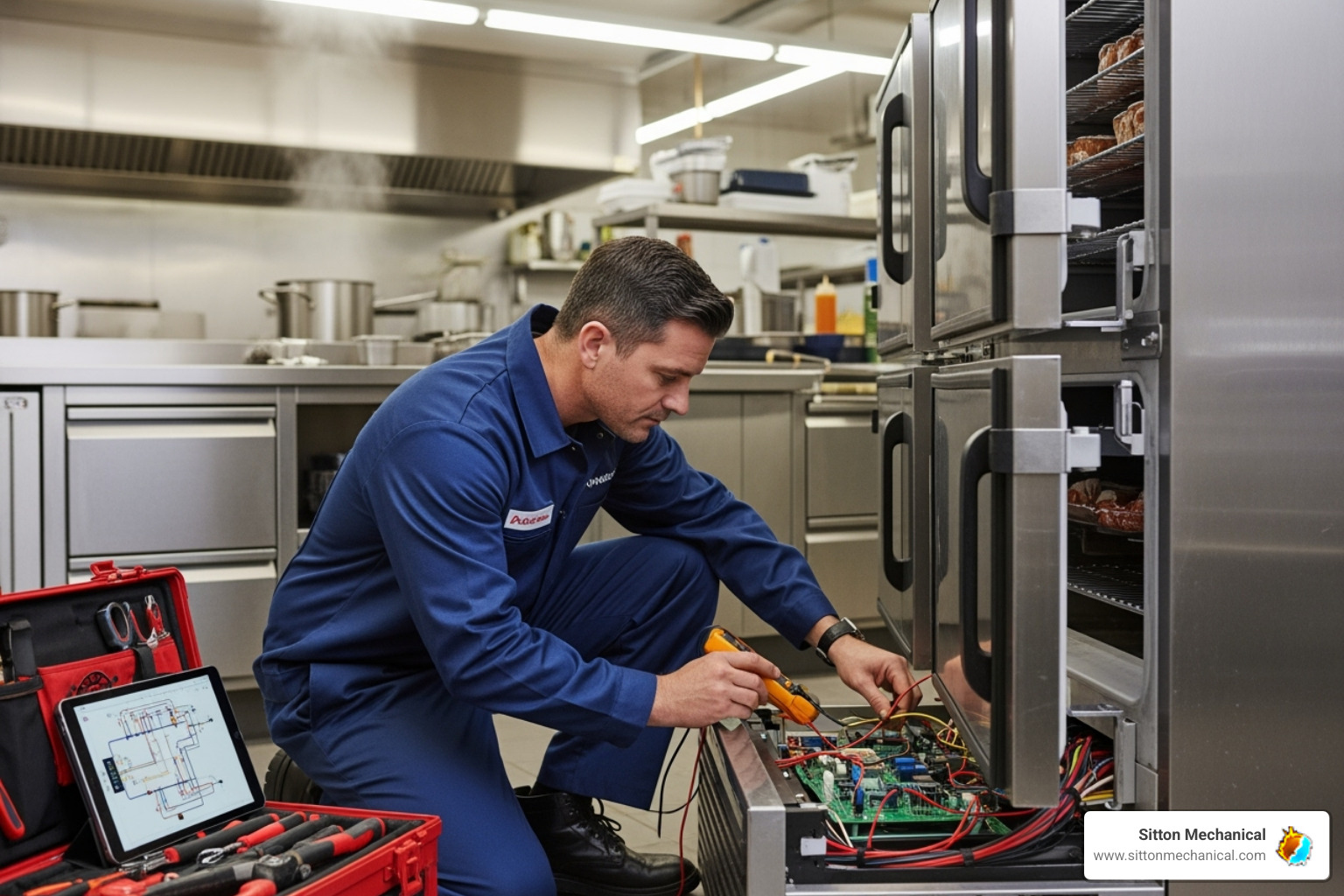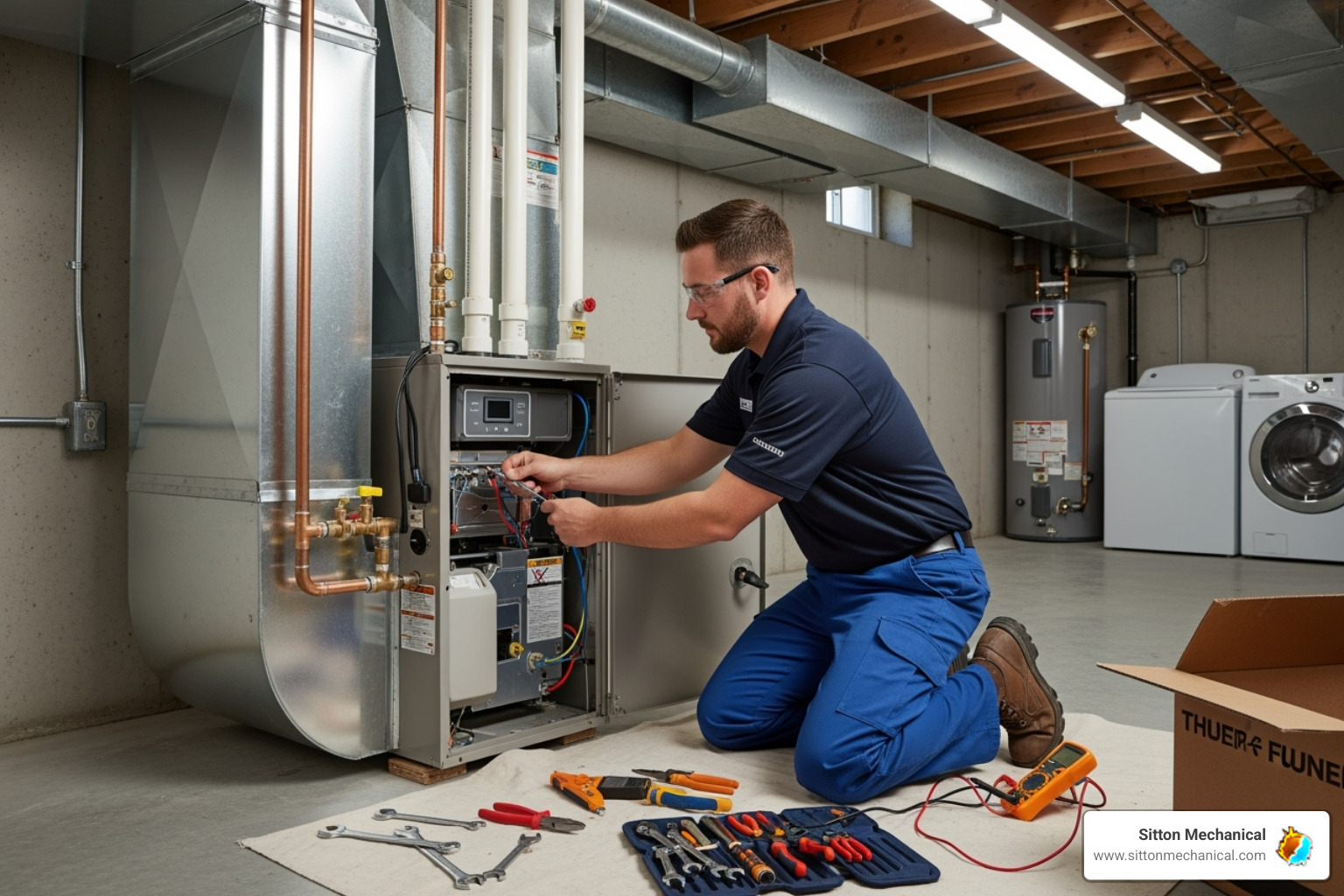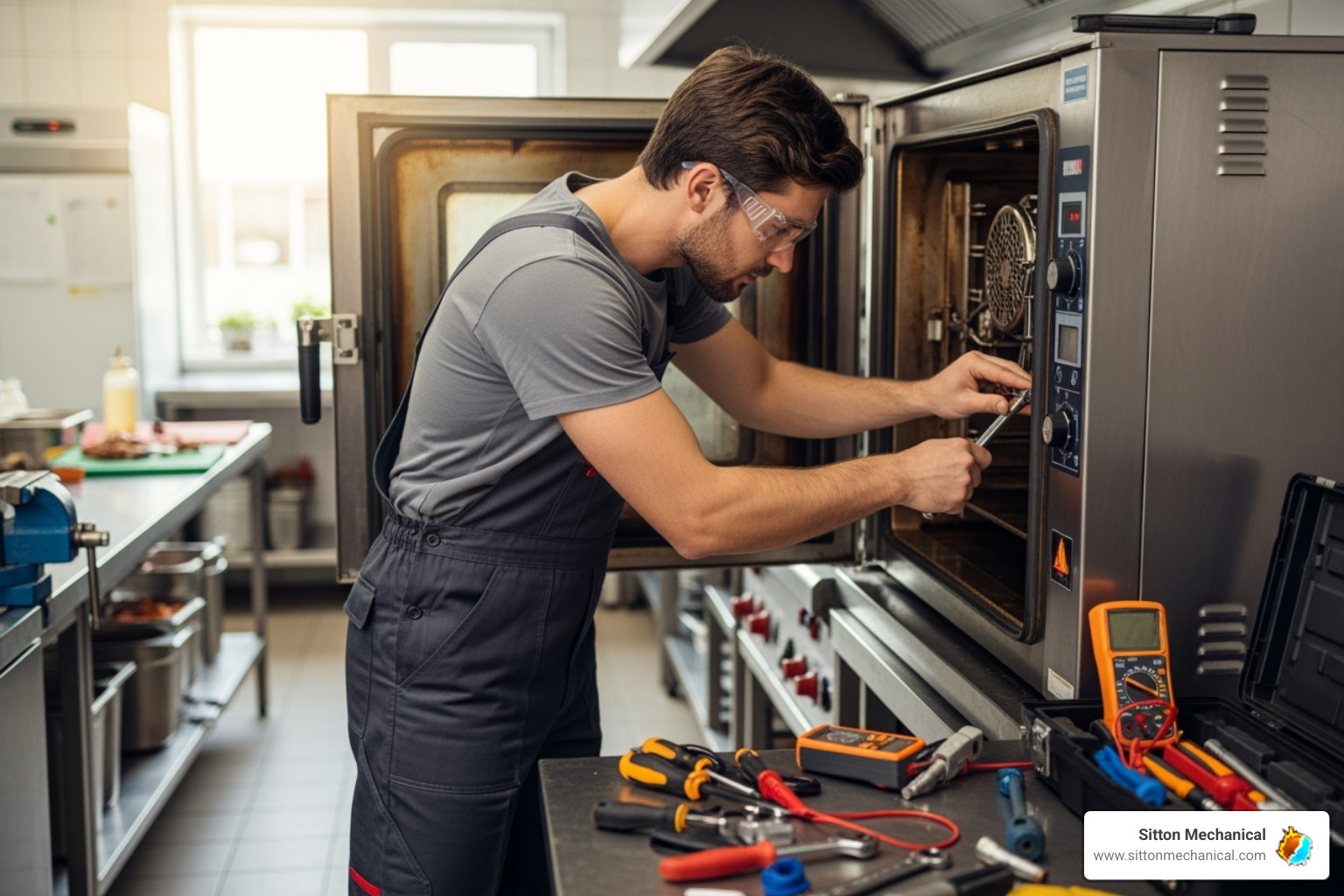A home heating system is something homeowners depend on without giving it much daily thought until something goes wrong. In Stillwater, when temperatures stay high during the summer, any sudden issue with your heating system might easily be overlooked. But early fall is a smart time to look out for heating problems before you need the system every day. If anything seems off right now, it is often a warning sign worth checking because small issues can become costly ones if ignored.
Heating maintenance is not just about long-term care. It can solve immediate problems before they affect comfort or safety. Whether it is an odd sound, a spike in your energy bill, or rooms that do not warm up properly, each of these signs can indicate that your system needs attention. If you are noticing any of the signs below, it may be time to have one of our technicians take a look. Acting early can help you avoid breakdowns once those Stillwater nights get colder.
Uneven or Insufficient Heating
If you walk through your home and notice that some rooms feel noticeably colder than others, it is likely not just a draft. Uneven heating is a common signal that your system is not distributing warm air the way it should. It could be due to issues with ductwork, a struggling blower motor, or even a clogged air filter. Whatever the cause, the outcome is the same—you are uncomfortable in your own home.
In Stillwater homes, this problem can start gradually. You might ignore it at first, thinking the wind outside is the reason. But targeted cold spots are usually caused by something inside the system. If your living room feels fine but your bedroom is constantly cold, do not wait for the weather to change again to see if the issue goes away. It likely will not.
Here are some common signs you may be dealing with uneven or insufficient heating:
- One or more rooms are colder than the rest of the house
- The thermostat is set correctly, but temperatures still vary
- You constantly adjust the thermostat without lasting results
- Vents are open, but little to no air is coming through
- You notice slower warm-up times than usual
These are all signs the system is working harder than it should, and that often means something is not operating as designed. Catching these problems early keeps your heater from using more energy than needed just to keep up with demand.
Unusual Noises From the Heating System
A heating system typically hums or clicks softly as it cycles on. Sudden loud noises, however, are never normal. If you hear banging, clanking, screeching, or rattling while your unit is running, that is a clear sign something inside is not working right.
For example, a banging or popping sound could mean there is a delay in ignition or expanding air ducts. Screeching might point to worn-out belts or loose motor bearings. Even a persistent humming louder than usual may suggest electrical issues. The sooner these sounds are addressed, the lower the chance they develop into something more serious or damaging.
Trying to tune out noises might seem like a good way to find peace in the short term. But persistent sounds are usually your system’s way of telling you it needs help. A Stillwater homeowner once described it like this: one day, their attic heating unit started making a whistling noise every time they turned it on. They thought it was nothing, but within days, their heating shut down completely because a motor was close to burning out. Waiting had doubled the repair cost.
If your heating system is making noises that were not there before, it is best to take them seriously. It is more affordable to deal with the cause early than to face a total breakdown when you need your heat the most.
Rising Energy Bills
When a heating system starts to lose efficiency, one of the first places you will notice is your utility bill. If you are using your heater the same way you always have but see an unexpected increase in your monthly cost, something in the system could be pulling more power than usual. That is a red flag that should not be brushed off.
Stillwater homeowners often assume high energy bills in early fall are due to the changing temperatures. In some cases, that might be true. But if the cost keeps rising even with consistent usage patterns, it likely means the system is working harder than it needs to. That can happen due to clogged filters, clogged burners, broken sensors, or older worn-out components.
These common issues may drive up costs without warning:
- The system’s cycle is running longer than normal
- The thermostat temperature does not match the room feel
- Heating equipment feels hot to the touch or runs louder than before
- You have noticed a steady increase in bills over recent months
A jump in your heating bills does not mean you need a new system right away, but it usually does mean something inside the unit needs a closer look. Catching the issue early can help restore efficiency and keep monthly costs under control.
Frequent System Cycling
Heating systems rely on a cycle pattern that keeps your home comfortably warm without running nonstop. But if your unit is turning on and off more often than it used to, that is known as short cycling. It is more than just annoying. It can shorten the life of your system and lead to breakdowns.
Several problems can cause short cycling, including a dirty flame sensor, malfunctioning thermostat, overheating, or airflow restrictions. All are situations that require attention from one of our technicians. When systems cycle too often, they are not just burning more energy. They are wearing out key parts faster too.
Common signs of short cycling include:
- The heater shuts off after only a few minutes of running
- Uneven heating that never seems to settle
- More frequent clicks or ignitions from the unit
- Unexpected stops in heat with the thermostat still set
If you find yourself constantly adjusting your thermostat or wondering why the system keeps turning off, there is probably something wrong that is worth fixing now—before it causes a breakdown later.
Poor Air Quality Coming From Your Vents
Your heating system does more than just warm the air. It also filters and moves it through your living spaces. If you are noticing a rise in dust buildup or dryness in your home, the heating system could be the reason. Poor air quality is often overlooked but can be a clear sign that something is not working properly.
Filters, ductwork, and even the condition of your furnace all play a role in the air quality in your Stillwater home. If the system is not catching particles or if airflow is being obstructed, the air can feel musty or dry. You might also detect an unusual burning, dusty, or musty odor when the system activates, especially after being off for a while.
Look out for changes like:
- Air feeling dry, even with humidifiers running
- Dust building up quickly on furniture or vents
- Lingering odors that worsen when the heat turns on
- Increased sneezing or discomfort while indoors
Poor air quality is not just uncomfortable. It can also mean the system is spreading allergens or not filtering debris like it is supposed to. Fixing that starts with inspection and regular maintenance to make sure each part is doing its job.
Protect Your Home's Comfort in Stillwater
Heating issues do not always happen overnight. Often, the problem builds slowly as your system loses efficiency or develops wear and tear. But it does not take long before those small signs start affecting your comfort and your costs. If you have noticed higher bills, loud noises, or air that just does not feel right, now is the time to take action. Early fall is the best season in Stillwater to handle heating problems before temperatures begin to drop.
Being proactive keeps you comfortable and helps avoid expensive emergency repairs during colder months. Regular heating maintenance helps spot minor problems and fix them before they become something bigger. If any of these signs look familiar, it could be time to let our technicians take a look. That small step today can go a long way toward keeping your home warm, safe, and predictable all season long.
If you have noticed higher energy bills, uneven warmth in your home, or strange sounds from your heating system, scheduling heating maintenance in Stillwater can help prevent minor issues from turning into major repairs. At Sitton Mechanical, our professionals understand how early signs can indicate larger problems and provide careful evaluations to keep your system running efficiently. For a quick estimate or to book a service visit, please contact us today.
Ready to Transform Your Home?














